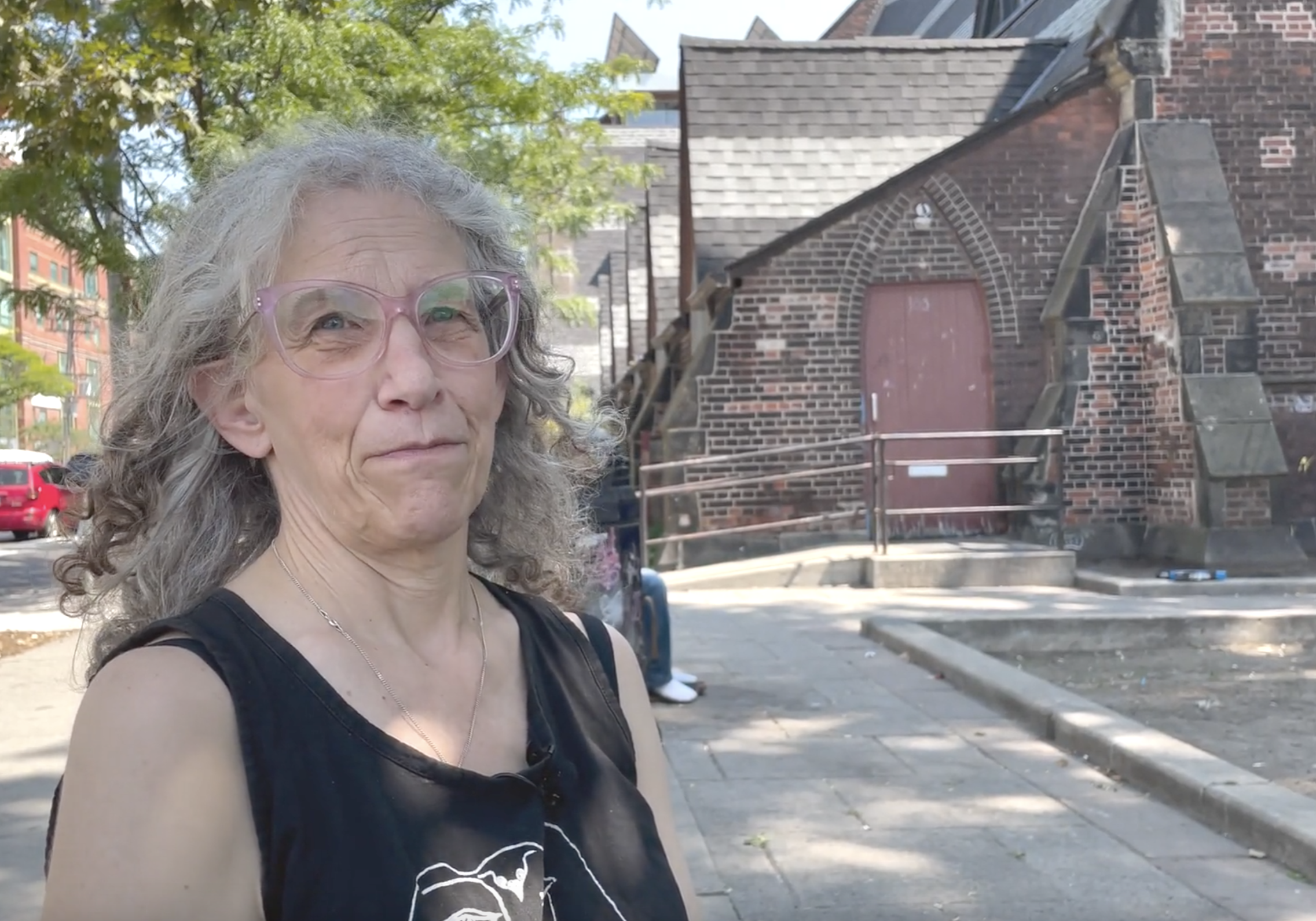THE GREEN LINE
VIDEO STORY
know your neighbour: maggie helwig
Maggie Helwig, the rector and priest-in-charge of the Church of St. Stephen-in-the-Fields, talks about what the city and neighbours can do for unhoused people living in encampments.

Maggie Helwig is the priest of the Church of St. Stephen-in-the-Fields in Kensington Market.


Chun he
Immigration lawyer keen to amplify marginalized perspectives. Lover of coffee and biking in heavy traffic. Raised in the GTA and newcomer to Kensington Market.
October 20, 2024
The Church of St. Stephen-in-the-Fields has been in the Kensington Market neighbourhood since 1858.
Church rector Maggie Helwing says St. Stephen has always been an integral part of the community, often serving as a launch pad for many local grassroots initiatives.
Today, the church is known in Kensington for its drop-in program, called "Safe Space," where people can come in for a warm meal, harms reduction supplies and a friendly conversation. St. Stephen also welcomes unhoused community members who use its yard in addition to nearby parks for encamping.
Concerns over rising homelessness and queries into what the city of Toronto is doing about it were one of the top issues shared by community members surveyed at The Green Line’s engagement outpost throughout the summer.
Helwig, who has been at the frontline of the homelessness crisis for decades, says there's nowhere near enough adequate housing solutions in Toronto, so encampments will continue to exist until more space is available. "You can do whatever you like about this encampment or that encampment. You're just playing human whack-a-mole."
Ultimately, Helwig says that federal and provincial governments need to step up along with the city of Toronto to provide housing solutions.
Until then, she adds that the appropriate course of action would be a harm-reduction approach through which the city provides more services for encampments such as garbage pickup, clean up, and fire safety equipment. That way, she says, people can live in a safer environment until they're genuinely able to move out.
Another important step is involving unhoused people, frontline agencies and concerned neighbours in the decision-making process regarding encampments.
Her advice for those who want to get involved? Talk to your neighbours.
"Try to explain to them what your perspective is, what you're seeing, how we can all live together better," she says.
Fact-Check Yourself
Sources and
further reading
Don't take our word for it —
check our sources for yourself.
Toronto's problems need solutions — and we've all got some ideas. Sign up for our free newsletter to take action.